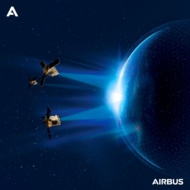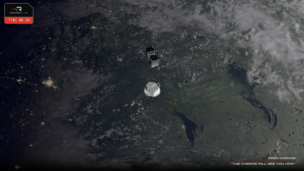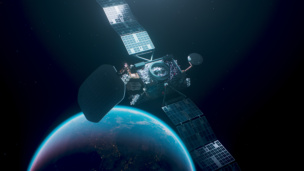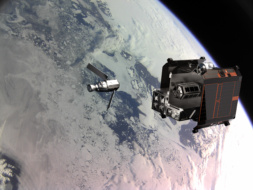South Korea’s Institute for Basic Science (IBS) selected NanoAvionics—the Lithuanian satellite bus manufacturer—to build the first of five 8U cubesats to study Venus from LEO.
The satellites—part of IBS’ CLOVE project—will carry UV and NIR observation instruments developed by IBS to monitor Venus’ cloud structures and atmospheric chemical makeup.
“We plan to acquire a ‘time series’ of Venus-disk reflectivity. To maintain data quality, having follow-up satellites that have the least instrumental degradation is a strong benefit compared to a single long-term planetary mission,” Lee Yeon Joo, chief investigator of the Planetary Atmospheres Group at IBS, told Payload via email.
The mission: Under the contract, NanoAvionics will integrate IBS’ scientific payloads into CLOVESat-1, conduct testing, arrange launch services, and manage launch and early-orbit operations. The first cubesat is expected to launch in 2026, with successive sats launching as regularly as once every three years until the early 2040s.
The goal is to study the Venusian atmosphere, volcanic activity, and solar interactions over a full 11-year solar cycle, and combine data from other observatories to get a complete picture of how Venus’ climate—which once resembled Earth’s—became inhospitable.
“This mission reflects a growing trend in space science, where small satellites play an increasingly important role in complementing larger-scale missions,” NanoAvionics CEO Atle Wøllo said in a statement.
Flying solo: The constellation’s work was expected to add to data collected on future up-close missions of our yellow neighbor, but NASA funding for three Venus-focused missions—DAVINCI, VERITAS, and EnVision—was cut in the Trump Administration’s FY26 budget proposal (which must go through Congress before being confirmed).
EnVision—a joint effort between NASA and ESA—could still have a shot of survival if European states agree to keep it alive during budget meetings this year. To rescue EnVision, ESA will need to determine how to fund or replace the mission’s SAR, and deep space network support, which NASA had previously agreed to provide for the mission.




